In MENALSA, Arab American students find community, support to enrich their law school experience
Several students share how MENALSA provides a home away from home and helpful tools for them to grow as legal professionals
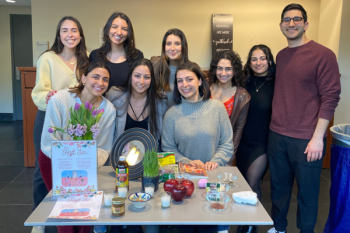 MENALSA event celebrating Nowruz at Duke Law
MENALSA event celebrating Nowruz at Duke Law
For many Arab American students, the Middle Eastern North African Law Student Association, commonly known as MENALSA, is a special part of their time at Duke Law School. Students say finding a MENA community – fellow students with their shared culture, language, and lived experiences – provides an important connection to their heritage while going to school thousands of miles from home.
“I did truly find another form of family in MENALSA,” said Alanah Herfi ’24, a first-generation Arab American who hails from Detroit.
The Arab American community consists of Americans with roots in at least one of 22 countries located in the Middle East and North Africa: Algeria, Bahrain, the Comoros Islands, Djibouti, Egypt, Iraq, Jordan, Kuwait, Lebanon, Libya, Morocco, Mauritania, Oman, Palestine, Qatar, Saudi Arabia, Somalia, Sudan, Syria, Tunisia, the United Arab Emirates, and Yemen.
During April, nationally recognized as Arab American Heritage Month, people across the United States celebrate the contributions of Arab Americans to the nation. Here at Duke Law, we’re taking this opportunity to highlight the educational and supportive resource that MENALSA is for our students, as well as the broader Duke Law community.
A relatively new student organization, MENALSA is consistently active throughout the academic year, hosting a wide array of events to promote a better understanding of MENA social, legal, and professional issues. This past year, MENALSA held several events including a conversation with Norfolk Commonwealth Attorney Ramin Fatehi, a panel discussion on ‘Women, Life, Freedom: The Iranian Uprising,’ and a panel with MENA lawyers in Big Law. Social events are also on the docket with fun gatherings to celebrate the Persian New Year and enjoy fellowship.

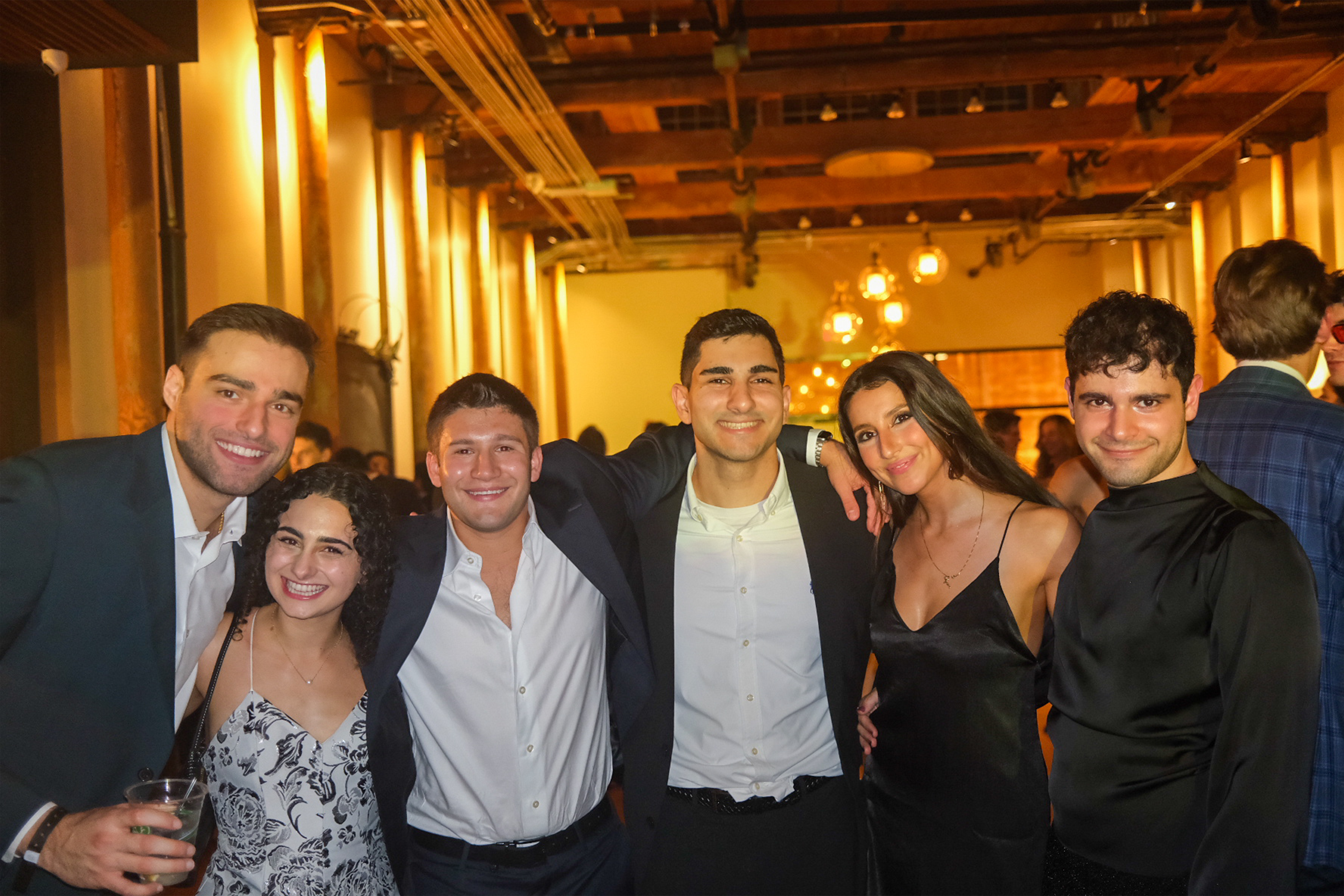
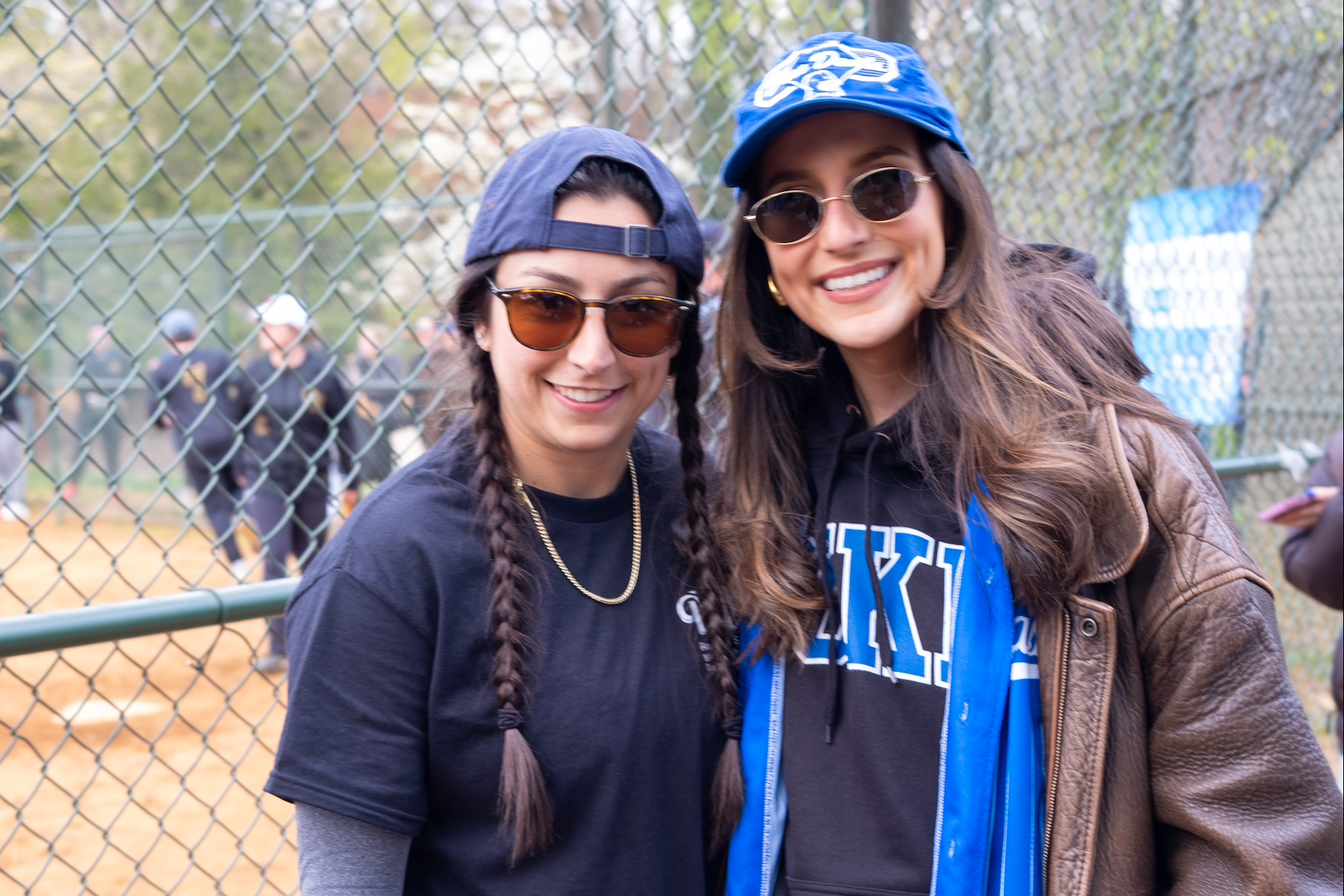
Herfi, a former co-president of MENALSA, says celebrating her heritage takes on an even more special meaning for her during the month of April.
“It is important for me to make sure the traditions and heritage of my family live on through me, and this month is a wonderful reminder of that,” she said. Initially, Herfi thought moving to Durham for law school would also mean moving away from the close ties to her heritage that she cherished at home.
“Coming to North Carolina, I was nervous it’d be hard to connect with my culture without my family,” Herfi said. “I am so grateful I’ve gotten the opportunity to form lifelong friendships with my peers, and I can’t imagine what law school would’ve been like without them.”
In addition to MENALSA, Herfi has also worked with the Duke Bar Association and Women Law Students Association.
As of Jan. 1, 2023, there were more than 1.3 million active lawyers in the U.S., according to the National Lawyer Population Survey (NLPS) conducted by the American Bar Association. The survey shows the number of lawyers of color nearly doubled in the last decade, growing from approximately 11% in 2013 to 21% in 2023.
It’s difficult to find specific numbers regarding Arab American lawyers because the federal government categorizes people with MENA origins as white. The National Association for Law Placement’s 2023 Report on Diversity in U.S. Law Firms reported the number of partners of color increased from 5.4% in 2007 to 11.4% in 2022.
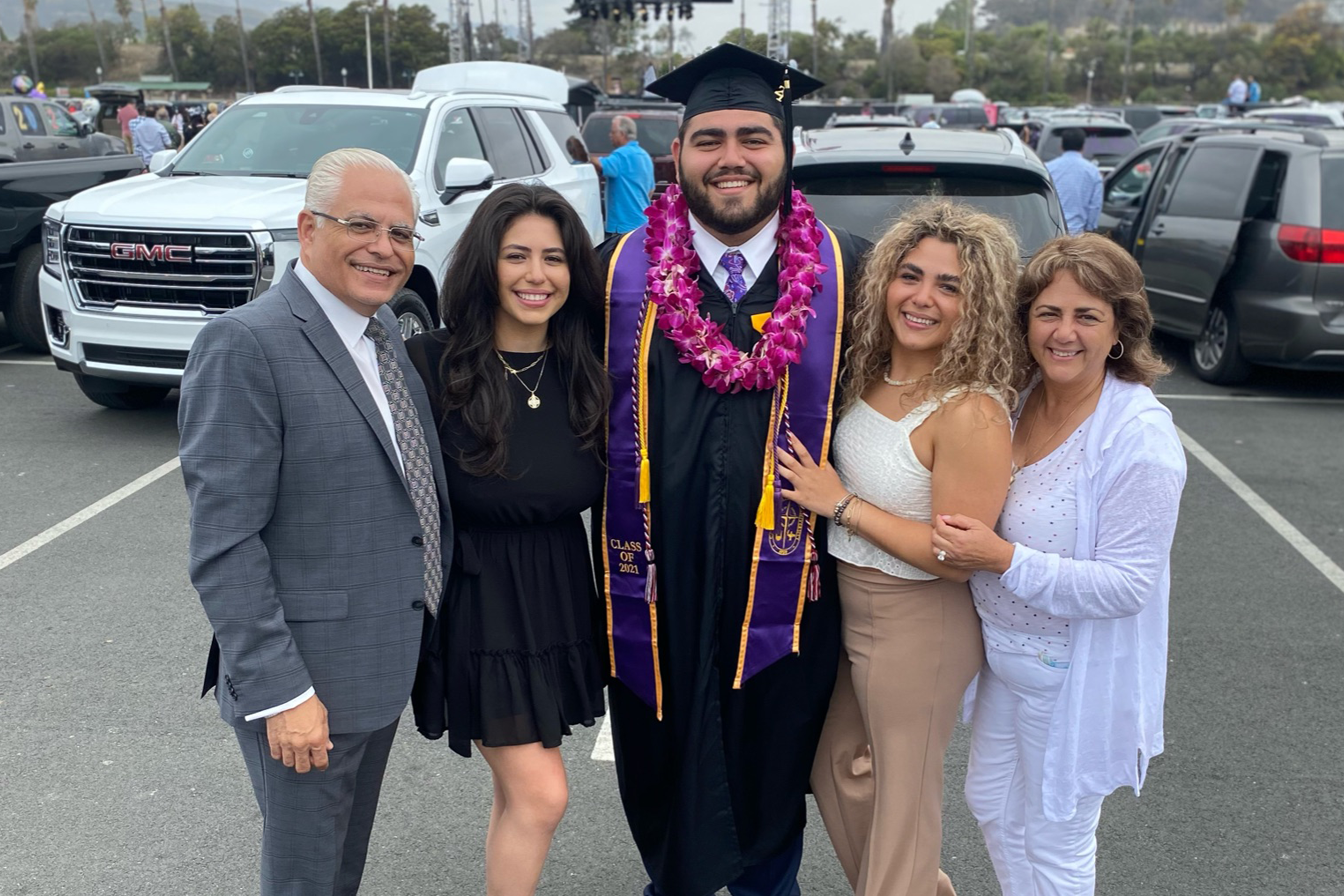
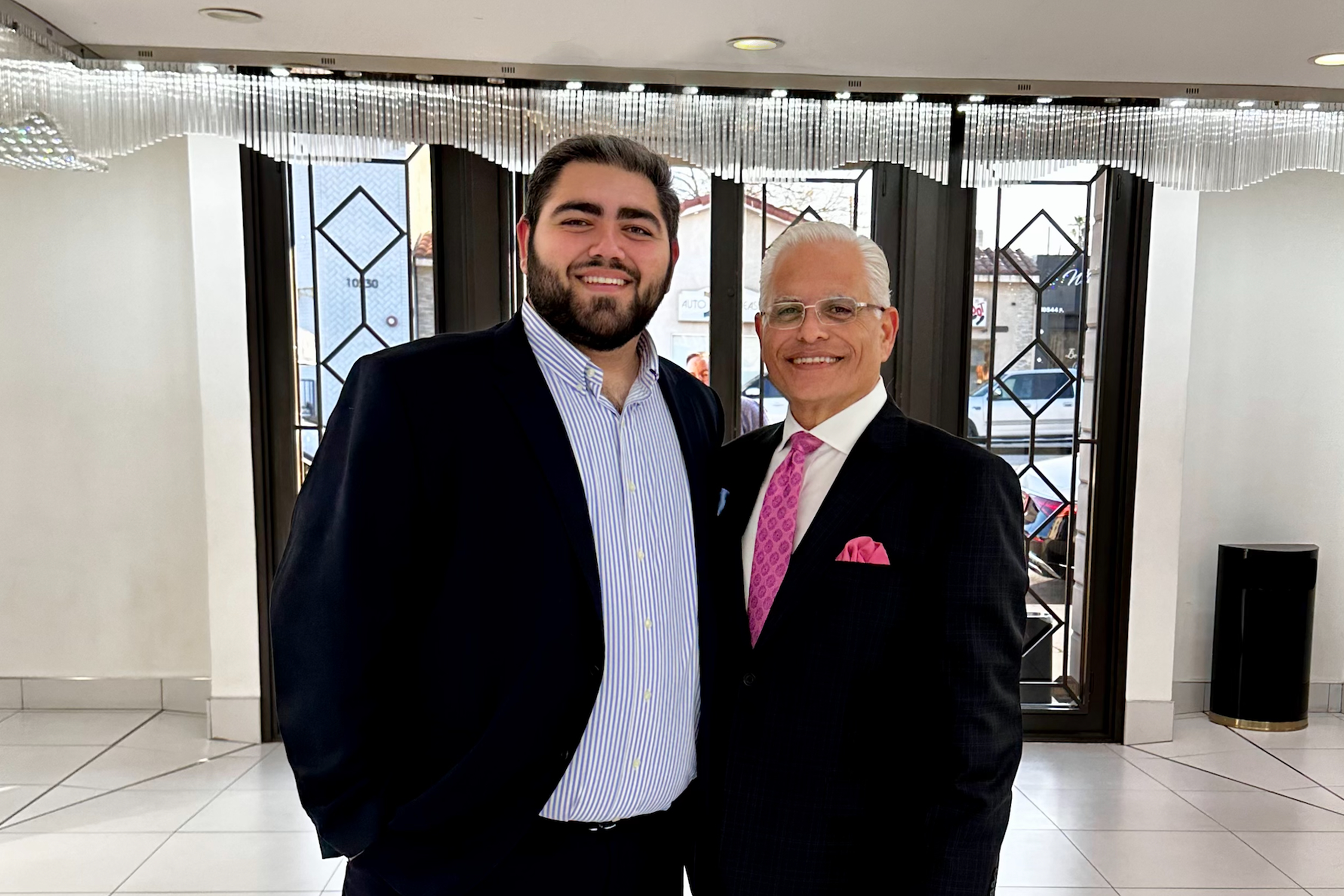

George Khoury ’24, a native of Los Angeles and former 2L representative for MENALSA, holds a deep reverence for Arab American trailblazers like Fadwa Hammoud, Michigan’s first Arab-American solicitor general and the first Arab-American Muslim woman to argue before the U.S. Supreme Court, and the Hon. Zahid N. Quraishi, a former judge advocate who became the nation’s first Muslim American Article III judge. Their historic achievements inspire his own aspirations for a career in the law.
Khoury says he’s equally grateful for the sacrifices made by those much closer to home. “My father, aunts, uncle, and grandparents have all been instrumental in showing me what a privilege it is to be Arab,” Khoury said. His heritage, though, has been a point of personal conflict and struggle since the Israel-Hamas war erupted last October.
“As an Arab American of Palestinian descent, I have struggled with my identity, how I am perceived by others, and how to engage with political and academic discourse surrounding the Middle East,” he said. “However, I am incredibly grateful for the support of my friends at the Law School, especially my MENALSA family. Without them I would lack the comfort and encouragement needed to finish my last year. So, I am extremely grateful for them.”
Last week, Khoury received the Richard Lin Service Above Self Award at Duke Law. An award voted by his peers, it is given to a student who embodies the qualities of optimism, integrity, humility, and generosity of time and energy.
Khoury is also involved with the Duke Law Journal, Moot Court Board, Duke Immigrant Rights Project, Clemency Project, Government and Public Service Society, and Latin American Law Students Association.
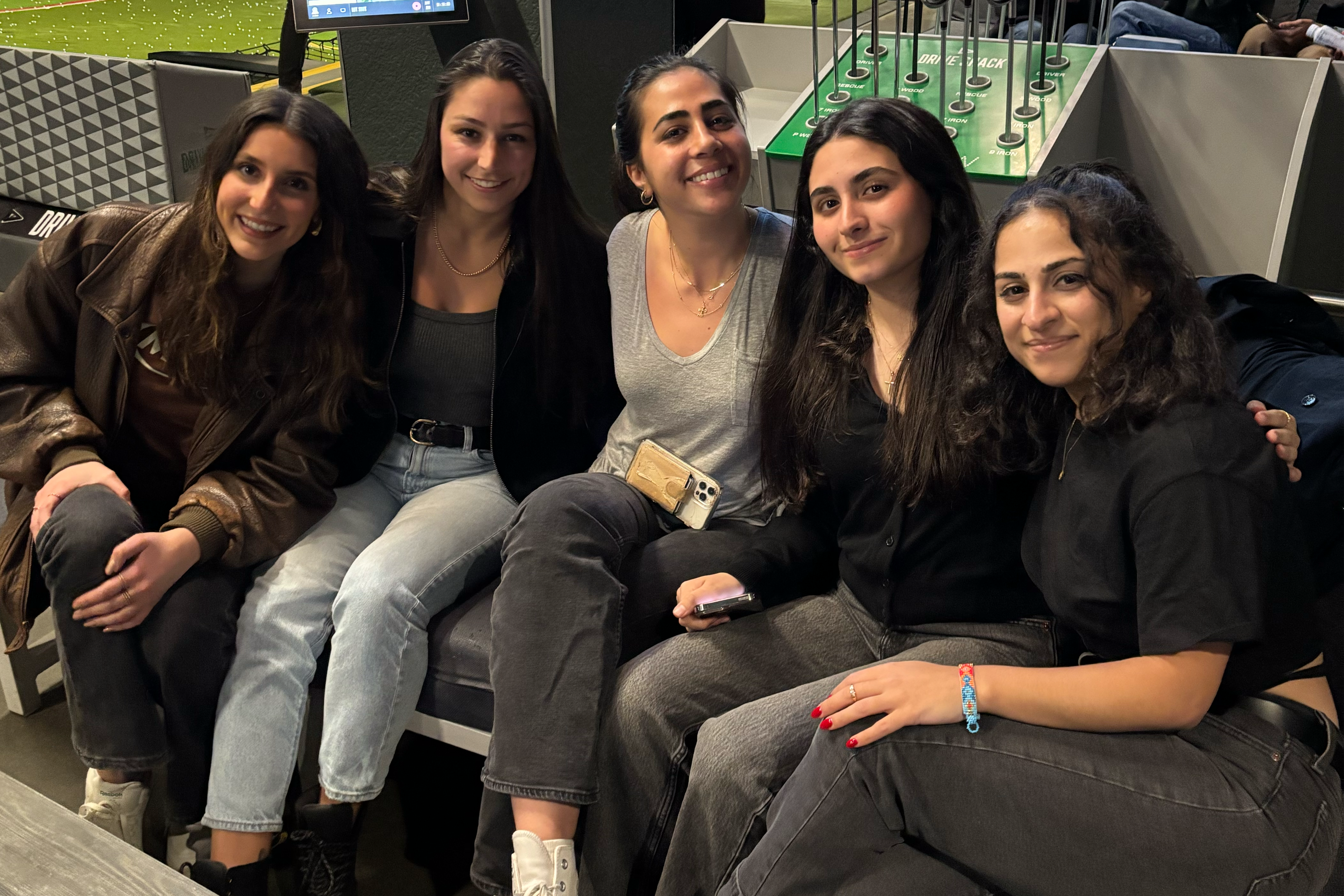

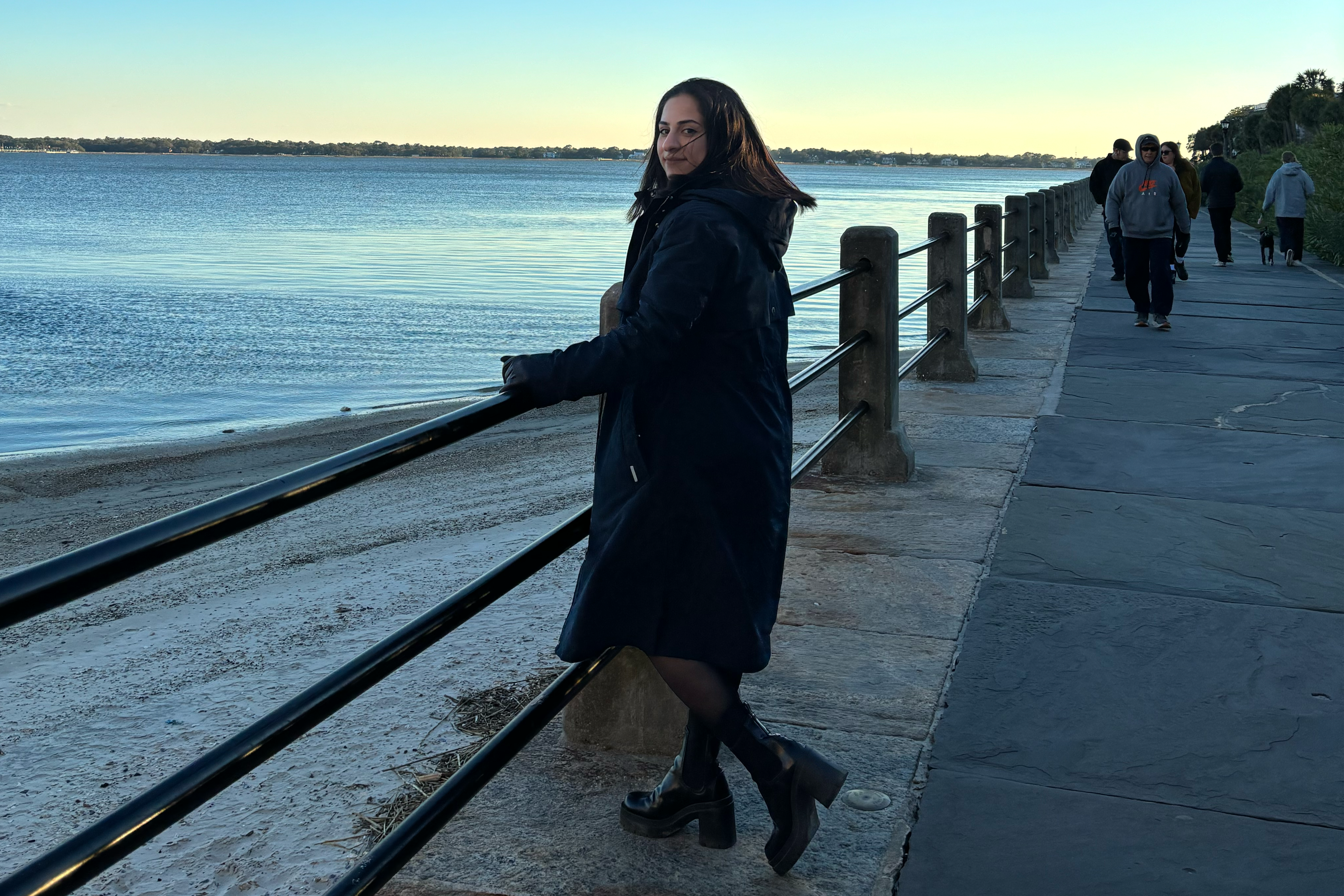
Parsin Walsi LLM ’24, from Freiburg, Germany, holds MENALSA very dear to her. While studying in Germany, Walsi said she often found herself to be the only person of MENA descent in the room. That wasn’t the case when she came to Duke Law.
“It’s like a home away from home where I can be myself and meet others who get where I am coming from,” Walsi said. “We learn from each other and build connections that make law school and our future careers more inviting.”
Walsi said that MENALSA also offers a helpful and involved alumni network. “It is always fun meeting MENALSA alums and chatting with them about their experiences navigating careers in fields where MENA-identifying persons are still underrepresented. It is very special to have role models that you can relate to and look up to.”
At Duke, Walsi served as an LLM representative in the Business Law Society and as part of the pro bono clinics helping to provide legal services to communities in need in North Carolina.
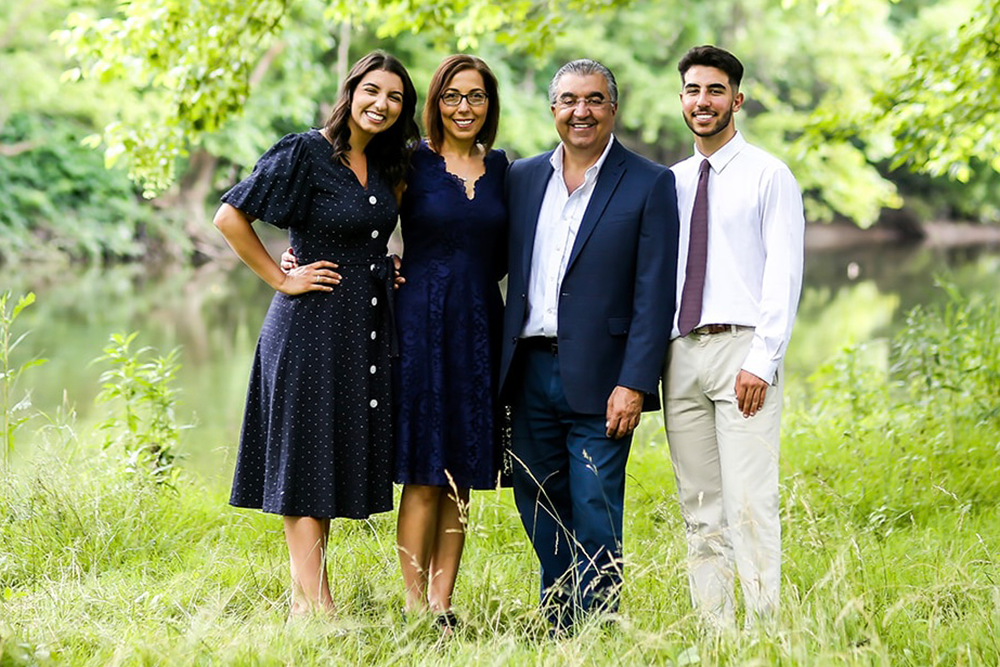


Joelle Jarjoura ’26, of Kingsport, Tenn., is the incoming president of MENALSA. For her, Arab American Heritage Month shines a light on the rich diversity of Arab Americans and the hallmarks of the cultures that exist within the Middle East.
“My grandparents live in the Lebanese capital of Beirut, where stunning mosques stand alongside glorious churches,” Jarjoura said. “Strangers meet and immediately invite you over for a cup of coffee and a chat. It’s a culture filled with hope and passion – and the most delicious food I’ve ever had.”
Reflecting on her first year at Duke Law, Jarjoura says she found some of her closest friends in MENALSA. “We bond over our shared love of shawarma and tabbouleh, share our thoughts on the ever-changing dynamics and politics within the region, and dance to the music of Nancy Ajram and Amr Diab,” she said.
As a 1L, Jarjoura placed as a quarter-finalist in this year’s Hardt Cup Tournament and a finalist in the Twiggs-Beskind Mock Trial Tournament. She’s been active as a pro bono asylum volunteer with the Duke Immigrant and Refugee Project, as well.
To learn more about MENALSA, please visit their page on Instagram.